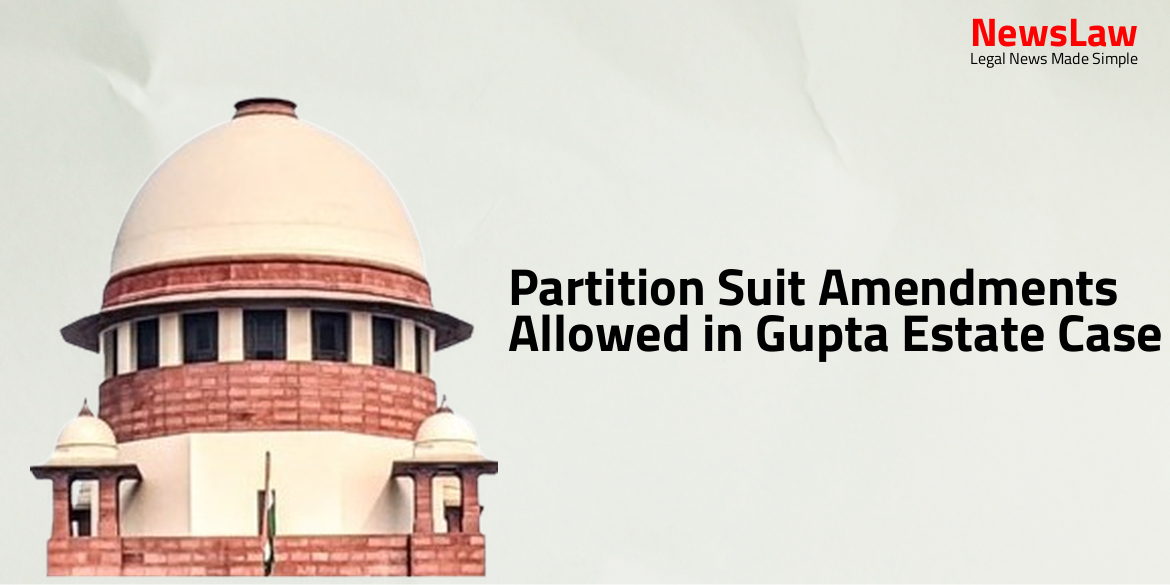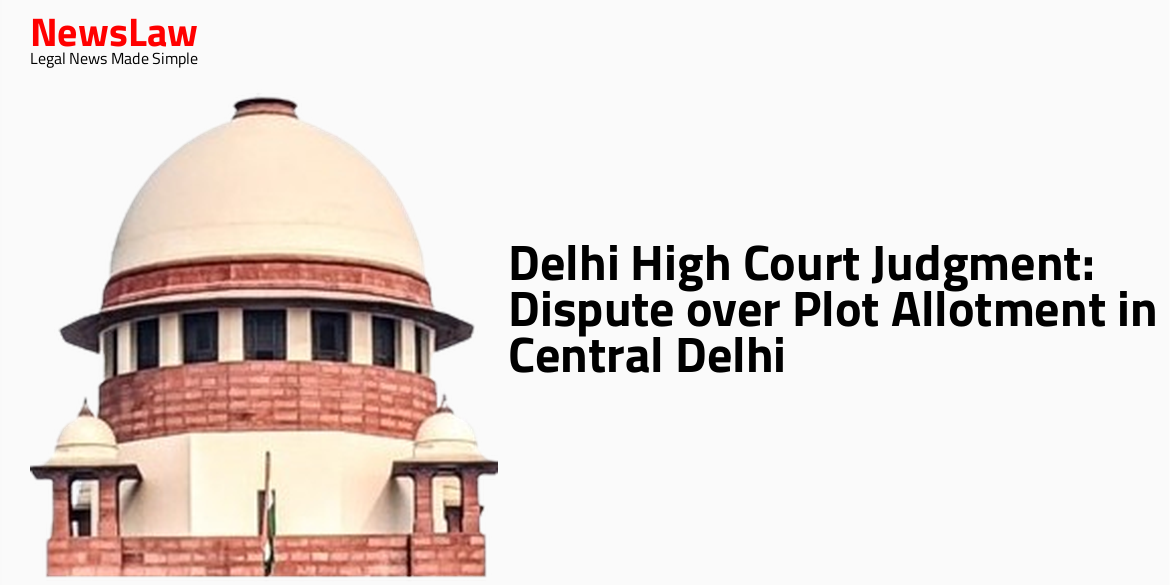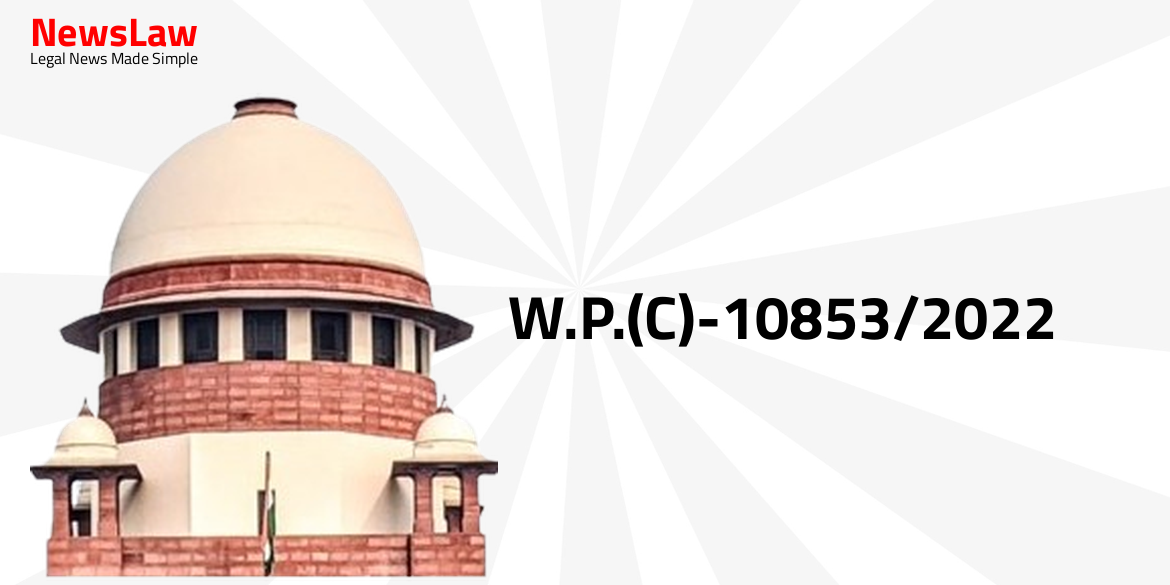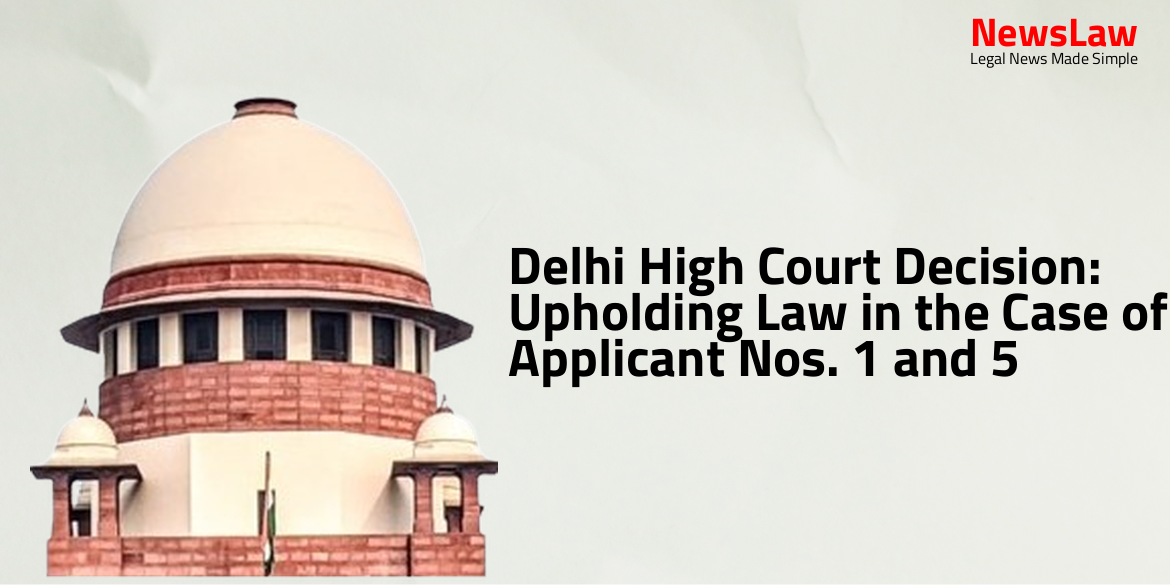The Delhi High Court recently made a significant ruling in the Gupta Estate Case, permitting amendments to the partition suit. This decision will impact the distribution of immovable properties left behind by Late Sh. ML Gupta. Stay tuned as the court navigates the complexities of this property dispute.
Facts
- Late Shri M.L. Gupta provided a loan of Rs. 1.60 crores to the Plaintiff on April 12, 2005.
- The loan amount was transferred through a cheque drawn on Bank of Tokyo-Mitsubishi Ltd.
- The money was deposited into the Plaintiff’s Savings Bank Account maintained with Bank of Tokyo-Mitsubishi Ltd.
- The Plaintiff used the loan amount to acquire immovable properties, including 141, Tower-A, Kalpatru Horizon, S.A Ahir Marg near Doordarshan Tower, Worli, Mumbai.
- The Plaintiff filed a suit for partition, claiming a 1/3 share in the properties and assets of Late Shri M.L. Gupta’s estate.
Issue
- The issue in this case revolves around the distribution of immovable properties left behind by Late Sh. ML Gupta.
- It is stated that Late Sh. ML Gupta passed away leaving behind a will dated 27.12.2019, however, if the court determines that he died intestate, the properties are to be partitioned between the Plaintiff and the Defendants in accordance with the law.
- A total sum of Rs. 5,23,49,700 was paid/transferred by Late Sh. ML Gupta to the Plaintiff and her family members during his lifetime, including the sum of Rs. 1.6 Crores as mentioned. This amount is a crucial point of contention in the case.
Arguments
- Defendant No. 1 has objected to the partition suit based on the existence of a last will dated 27.12.2019 by Late Sh. M.L. Gupta.
- Defendant No. 1 argues that the plaintiff must account for the properties mentioned in the will and these properties should be included in the estate of Late Shri M.L. Gupta for partition.
- Defendant No. 1 requests to amend the written statement to include additional paragraphs under preliminary objections to prevent the plaintiff from disposing of the properties until the suit is resolved.
- The defendant no. 1 argues that the proposed amendments are necessary for the adjudication of the suit.
- Defendant no. 1’s property in Greater Kailash, New Delhi, acquired in 1995, is crucial to the partition.
- The learned senior counsel for defendant no. 1 highlights that if plaintiff’s properties are impacted by Benami Transactions Act and Hindu Succession Act, defendant no. 1’s property should also be included.
- Therefore, the plaintiff’s opposition based on limitation is not valid according to the defendant no. 1.
Analysis
- The plaintiff has intentionally omitted three properties in the suit which she claims as her own, without any legal or factual basis.
- The defendant alleges that the plaintiff’s actions amount to deceitful exclusion of properties to gain an unfair advantage.
- The defendant asserts that the plaintiff owes debts and has concealed assets belonging to the deceased father and mother of the parties.
- There is a dispute regarding the timing of property acquisitions by the plaintiff and whether they can be included in the partition.
- The defendant claims that the plaintiff is attempting to sell the properties in question, leading to concerns about ownership and possession.
- The delay in applying for amendments alone is not sufficient grounds to disallow the amendments.
- The court must consider the potential impact on the opposite party when deciding on amendments.
- The court may allow an amendment of pleadings if it is necessary for determining the real question in controversy and does not cause injustice or prejudice to the other side.
- Amendments are to be allowed liberally to avoid multiplicity of proceedings and for effective adjudication of the dispute.
- The court should be liberal with amendments of written statements in comparison to plaints.
- The amendment sought should not add a new cause of action but can add to the existing facts on record.
- The court should exercise its discretion in allowing or disallowing amendments based on the interest of justice.
- The principles for allowing amendments include avoiding a hypertechnical approach, considering the interests of both parties, and permitting amendments that aid in a more satisfactory decision.
- If the amendment sought does not lead to a time-barred claim, does not change the nature of the suit, is not malafide, and does not affect a valid defense of the other side, it should generally be allowed.
- The court should aim to minimize litigation and may allow amendments even if they introduce claims that are subject to dispute.
- Any property possessed by a Hindu female, regardless of how it was acquired, becomes her absolute property after the Hindu Succession Act comes into force.
- Restrictions or limitations on the property given to a Hindu female for maintenance cease to exist after the Act.
- Section 14(1) of the Act allows a female to inherit property without any limitations.
- No attempt made to introduce proposed amendments separately
- Proposed amendments already part of defendant no. 2’s written statement
- Proposed amendments form part of the pleadings
Decision
- The present application seeking amendments to the written statement of Defendant No. 1 is allowed.
- Plaintiff can raise all objections and pleadings in its replication to the amended written statement within four weeks.
- The amended written statement must be filed within two weeks from today.
Case Title: VANDANA BATRA Vs. ANUPAM GUPTA & ANR. (2024:DHC:3811)
Case Number: CS(OS)-289/2022



